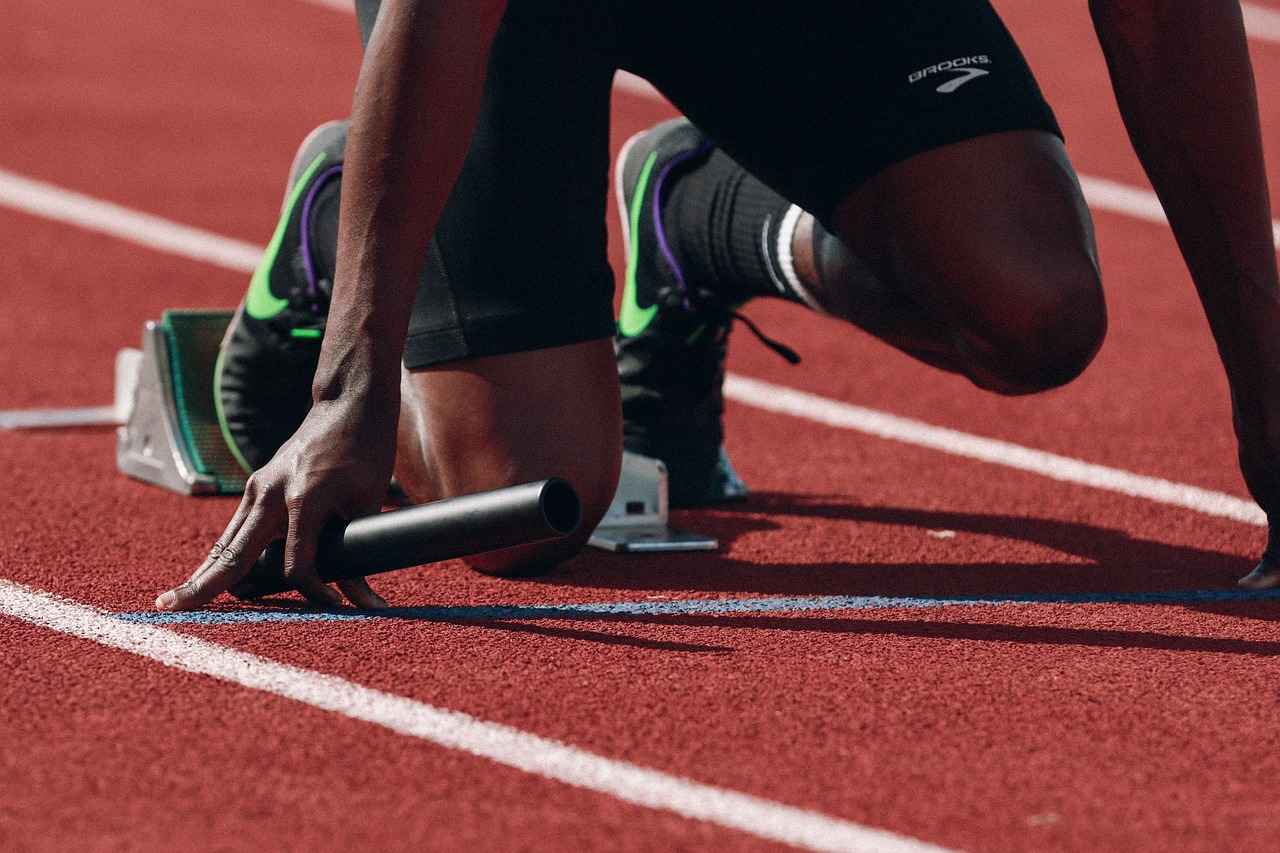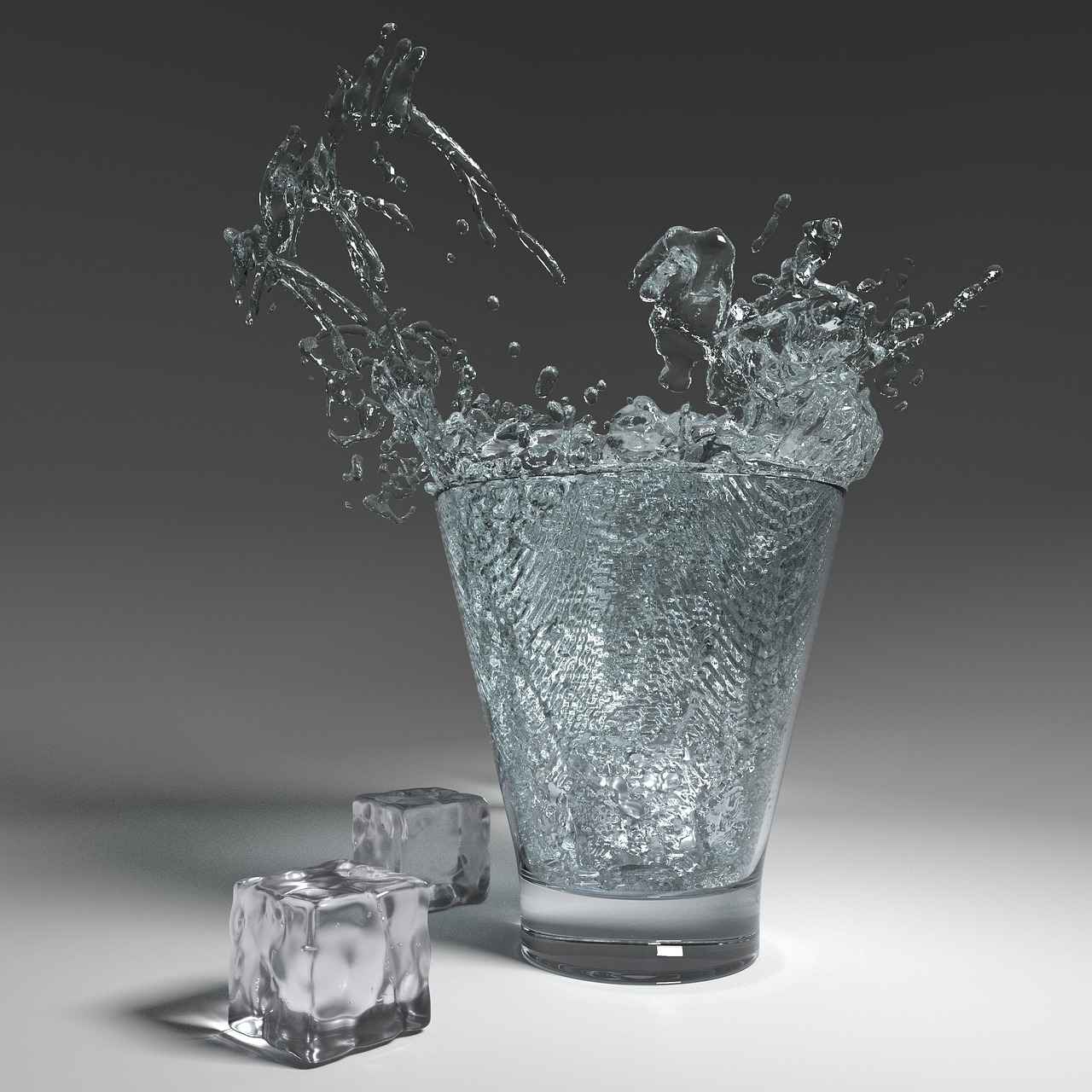This article delves into the complexities of water consumption during fasting, addressing common questions and concerns while providing insights into health benefits, types of fasting, and expert recommendations.
Understanding Fasting
Fasting is the voluntary abstention from food and drink for a specific period. It is essential to understand its different forms to determine whether water consumption is permissible. Fasting can range from short-term abstentions to prolonged periods, each with unique rules regarding hydration.
Types of Fasting
- Intermittent Fasting: This method involves cycling between periods of eating and fasting. During the fasting window, many practitioners question whether water is allowed and how it affects their goals.
- Water Fasting: This extreme form of fasting allows only water for a set duration, raising questions about safety and health implications.
- Religious Fasting: Various religious practices have different guidelines about food and drink intake during fasting periods.
Intermittent Fasting Explained
Intermittent fasting has gained popularity for its potential health benefits. During fasting windows, many individuals wonder about the role of water. Most experts agree that drinking water during intermittent fasting is beneficial. It helps maintain hydration, supports metabolic processes, and can even curb hunger pangs.
Benefits of Intermittent Fasting
Research suggests that intermittent fasting can lead to weight loss, improved metabolic health, and enhanced mental clarity. Understanding the role of hydration can further amplify these benefits, making it crucial to drink adequate amounts of water during fasting.
Hydration During Intermittent Fasting
Maintaining hydration during intermittent fasting is essential for overall health. Water not only supports bodily functions but also helps in managing hunger. Experts recommend drinking water regularly throughout the day, especially during fasting periods, to optimize health benefits.
Water Fasting Insights
Water fasting, where individuals consume only water, poses unique challenges. While it can provide detoxification benefits, it is vital to approach this method with caution. Consulting with a healthcare provider before starting a water fast is advisable to ensure safety.
Is Water Allowed During Religious Fasting?
Religious fasting practices vary greatly. Some allow water, while others strictly prohibit any intake. Understanding these nuances is essential for practitioners to align with their faith while considering health implications.
Islamic Fasting Guidelines
In Islam, fasting during Ramadan prohibits food and drink from dawn until sunset. However, hydration is encouraged during non-fasting hours to maintain health. Drinking sufficient water before dawn and after sunset helps support overall well-being.
Christian Fasting Practices
Christian fasting can take many forms, including total fasts and partial fasts. Water consumption often depends on individual interpretation and church guidance. It is essential for practitioners to seek clarity on their chosen fasting method.
Health Benefits of Staying Hydrated
Staying hydrated during fasting is crucial for overall health, aiding in digestion, energy levels, and cognitive function. Experts recommend understanding individual hydration needs to optimize health during fasting periods.
Impact of Dehydration
Dehydration can lead to fatigue, headaches, and reduced concentration. Recognizing the signs of dehydration during fasting is vital for maintaining health and wellness. It is essential to listen to your body and adjust water intake accordingly.
Recommendations for Hydration
Experts suggest drinking water before and after fasting periods. Understanding how much to drink can help optimize the benefits of both fasting and hydration. Aim for at least 8-10 cups of water daily, adjusting based on individual needs and activity levels.

Understanding Fasting
is essential for anyone interested in health, wellness, or spiritual practices. It is defined as the voluntary abstention from food and drink for a specific period. This practice is not only a means of detoxification but also serves various cultural, religious, and health-related purposes. By exploring the different forms of fasting, we can better understand the guidelines surrounding water consumption and its implications for health.
Fasting can take many forms, each with its own rules regarding hydration. For instance, intermittent fasting is a popular approach where individuals cycle between periods of eating and fasting. During the fasting window, many practitioners wonder about the permissibility of water intake. The consensus among health experts is that consuming water during intermittent fasting is generally beneficial. It helps maintain hydration, supports metabolic processes, and can even reduce hunger pangs, making it easier to adhere to fasting schedules.
Another form of fasting is water fasting, where individuals consume only water for a set duration. This extreme method raises questions about safety and health implications. While some advocate for its potential benefits, such as improved cellular repair and detoxification, it is crucial to approach water fasting with caution. Prolonged periods without food can lead to nutrient deficiencies and other health risks if not managed properly.
In addition to these modern practices, fasting is also a significant aspect of many religious traditions. For example, during Ramadan, Muslims abstain from food and drink from dawn until sunset. However, they are encouraged to hydrate during non-fasting hours to maintain overall health. Similarly, Christian fasting can vary widely, with some individuals choosing total fasts while others may allow for water consumption. The interpretation of these practices often depends on personal beliefs and guidance from religious leaders.
Staying hydrated during fasting is vital for maintaining overall health. Proper hydration aids in digestion, energy levels, and cognitive function. Experts recommend understanding individual hydration needs, as these can vary based on factors such as age, activity level, and climate. Dehydration can lead to symptoms such as fatigue, headaches, and reduced concentration, making it essential to recognize the signs early.
To optimize the benefits of fasting, it is advisable to drink water before and after fasting periods. This approach not only helps replenish lost fluids but also prepares the body for the fasting phase. Furthermore, incorporating electrolyte-rich beverages during longer fasting periods can support hydration and overall well-being.
In conclusion, understanding the nuances of fasting and hydration is crucial for anyone looking to engage in this practice safely and effectively. By recognizing the various types of fasting and their respective guidelines on water consumption, individuals can make informed decisions that align with their health goals and spiritual practices.

Types of Fasting
Fasting has gained significant attention in recent years, not only for its potential health benefits but also for its various methods and practices. Understanding the different types of fasting is essential for anyone looking to incorporate this practice into their lifestyle. Below, we explore the most popular fasting methods, each with its own guidelines regarding hydration and food intake.
Intermittent fasting is one of the most popular fasting methods, involving cycles of eating and fasting. There are several approaches to intermittent fasting, including the 16/8 method, where individuals fast for 16 hours and eat during an 8-hour window. During the fasting period, many practitioners wonder if they can consume water. Most experts agree that drinking water is not only allowed but also beneficial, as it helps maintain hydration and can mitigate feelings of hunger.
Water fasting is a more extreme approach, where individuals consume only water for a set period. This method is often used for detoxification or weight loss. However, it raises questions about safety and health implications. While hydration is critical during this type of fasting, it is essential to consult a healthcare professional before undertaking a prolonged water fast, as it may lead to adverse effects if not monitored properly.
Many cultures incorporate fasting into their religious practices, with rules varying widely. Religious fasting can include complete abstinence from food and drink, or it may allow for limited consumption of water. Understanding these nuances is crucial for practitioners to ensure they are adhering to their beliefs while also considering their health.
In Islam, fasting during Ramadan is a significant spiritual practice. Muslims abstain from food and drink from dawn until sunset. However, hydration is encouraged during non-fasting hours to maintain health and energy levels. It is vital for individuals observing this fast to drink plenty of water after sunset and before dawn to avoid dehydration.
Christian fasting can take various forms, including total fasts, partial fasts, and Daniel fasts, which involve abstaining from certain foods. Water consumption during these fasts often depends on personal interpretation and church guidance. Some Christians may choose to drink water, while others may follow stricter guidelines.
Regardless of the type of fasting, there are numerous health benefits associated with the practice. Fasting can lead to weight loss, improved metabolic health, and enhanced mental clarity. Staying hydrated during fasting is crucial, as it supports metabolic processes and helps maintain energy levels.
Experts emphasize the importance of hydration during fasting. Drinking water can help alleviate hunger pangs and prevent dehydration, which can lead to fatigue, headaches, and reduced concentration. It is essential to recognize the signs of dehydration, especially during prolonged fasting periods.
- Drink plenty of water before and after fasting periods to ensure adequate hydration.
- Consider adding electrolytes to your water, especially during longer fasts, to maintain balance.
- Listen to your body and adjust your water intake based on your activity level and individual needs.
In summary, understanding the different types of fasting and their hydration rules can significantly impact your fasting experience. Whether you choose intermittent fasting, water fasting, or engage in religious fasting, staying hydrated is crucial for optimizing the benefits of your fasting journey.
Intermittent Fasting Explained
Intermittent fasting has gained significant popularity as a dietary approach that alternates between periods of eating and fasting. This method is not just a diet; it is a lifestyle choice that many find effective for weight management and overall health improvement. Understanding the intricacies of this practice, including the role of water consumption during fasting periods, is essential for those looking to maximize their benefits.
When engaging in intermittent fasting, individuals typically follow a specific schedule, such as the 16/8 method, where they fast for 16 hours and eat during an 8-hour window. During the fasting phase, the question often arises: Can you drink water? The answer is generally yes, and here’s why.
Staying hydrated is crucial for maintaining optimal bodily functions, especially when fasting. Water plays a vital role in various metabolic processes, including digestion, nutrient absorption, and temperature regulation. Furthermore, drinking water can help mitigate feelings of hunger that may arise during fasting periods.
There are various forms of fasting, and the rules about water consumption can vary. For instance, in intermittent fasting, hydration is not only allowed but encouraged. On the other hand, during a strict water fast, individuals consume only water, which emphasizes the importance of hydration even more.
- Enhances Metabolic Rate: Staying hydrated can boost metabolism, which is beneficial for weight loss.
- Reduces Hunger: Drinking water can help suppress appetite, making it easier to adhere to fasting schedules.
- Improves Mental Clarity: Adequate hydration supports cognitive function, which can be particularly beneficial during fasting.
Nutritionists and health experts advocate for drinking water during fasting periods. They recommend consuming water freely throughout the day, as long as it does not interfere with the fasting schedule. Additionally, some suggest incorporating electrolyte-rich water or herbal teas to enhance hydration without breaking the fast.
Some individuals may fear that drinking water could disrupt their fasting goals. However, research indicates that water does not contain calories and will not trigger an insulin response. Thus, it remains a safe option during fasting periods.
Intermittent fasting can be a powerful tool for improving health and managing weight. Understanding the importance of hydration during this practice can enhance its benefits. By drinking water, individuals can support their metabolic processes, reduce hunger, and maintain cognitive function. As always, it’s essential to listen to your body and adjust your hydration habits according to your personal needs.
Benefits of Intermittent Fasting
Intermittent fasting has gained significant popularity in recent years as a powerful tool for enhancing overall health and well-being. This dietary strategy involves cycling between periods of eating and fasting, allowing the body to undergo various metabolic changes that can lead to numerous health benefits. Among these benefits, weight loss, improved metabolic health, and enhanced mental clarity stand out as key advantages.
One of the most notable outcomes of intermittent fasting is weight loss. By restricting the eating window, individuals often consume fewer calories, which can lead to a caloric deficit. Moreover, fasting triggers hormonal changes that facilitate fat burning. For instance, levels of insulin drop significantly during fasting, promoting the body’s ability to utilize stored fat for energy.
In addition to weight loss, intermittent fasting can enhance metabolic health. Research indicates that it can improve insulin sensitivity, lower blood sugar levels, and reduce inflammation. These factors are crucial in preventing chronic diseases such as type 2 diabetes and heart disease. By allowing the body to rest from constant digestion, intermittent fasting encourages cellular repair processes, further supporting metabolic function.
Another remarkable benefit of intermittent fasting is its impact on mental clarity. Many practitioners report increased focus and cognitive function during fasting periods. This improvement is attributed to the production of brain-derived neurotrophic factor (BDNF), a protein that supports neuron health and cognitive performance. Additionally, fasting may enhance the brain’s resilience to stress and promote neurogenesis, the formation of new neurons.
To maximize these benefits, understanding the role of hydration during fasting is essential. Staying adequately hydrated can amplify the positive effects of intermittent fasting. Water not only helps maintain essential bodily functions but also aids in curbing hunger pangs, making it easier to adhere to fasting protocols.
Many health experts recommend drinking water during fasting periods to support hydration. It is important to listen to your body and consume water as needed. Additionally, herbal teas or black coffee can be included, as they are typically low in calories and can provide a sense of fullness.
In summary, the benefits of intermittent fasting are vast and can lead to profound changes in weight management, metabolic health, and cognitive function. By integrating proper hydration practices into fasting routines, individuals can further enhance these benefits, leading to a healthier lifestyle overall.
Hydration During Intermittent Fasting
When engaging in intermittent fasting, one of the most common questions that arises is about the consumption of water. Hydration is a critical component of overall health, and during fasting, it takes on added significance. This section delves into the benefits of drinking water while fasting and provides insights into how it can enhance the fasting experience.
Staying hydrated is essential for various bodily functions. Water plays a vital role in:
- Regulating body temperature: Proper hydration helps maintain a stable body temperature, especially during periods of fasting when metabolic processes can fluctuate.
- Supporting metabolic functions: Water is crucial for digestion, nutrient absorption, and the elimination of waste. During fasting, these processes can be impacted, making hydration even more important.
- Enhancing cognitive function: Dehydration can lead to fatigue and decreased concentration. Drinking water can help maintain mental clarity, which is particularly beneficial during fasting periods.
Another significant benefit of drinking water during intermittent fasting is its ability to help curb hunger pangs. Many individuals experience cravings when they first begin fasting, and staying hydrated can alleviate some of these sensations. When the stomach is empty, it can send signals to the brain that mimic hunger. Drinking water can fill the stomach temporarily, reducing the perception of hunger.
Health experts generally agree that consuming water during intermittent fasting is not only allowed but encouraged. Here are some recommendations:
- Drink plenty of water: Aim for at least 8-10 cups of water throughout the day, adjusting based on your activity level and climate.
- Consider electrolyte balance: If fasting for extended periods, consider adding electrolytes to your water to prevent imbalances, especially if you are exercising.
- Listen to your body: Pay attention to your thirst cues and drink water when you feel thirsty, as this is a natural indicator of your body’s hydration needs.
Dehydration can pose several risks during fasting, including:
- Fatigue: Lack of water can lead to feelings of tiredness and lethargy, making it challenging to maintain energy levels.
- Headaches: Many people report headaches when dehydrated, which can be exacerbated during fasting.
- Impaired physical performance: Dehydration can affect endurance and strength, making physical activities more challenging.
In summary, drinking water during intermittent fasting offers numerous benefits, including improved hydration, better metabolic function, and reduced hunger pangs. By prioritizing water intake, individuals can enhance their fasting experience and support their overall health. As always, it is essential to listen to your body and adjust your hydration practices to meet your personal needs.
Water Fasting Insights
Water fasting is a practice that involves abstaining from all food and consuming only water for a predetermined period. This method of fasting has gained popularity for various reasons, including detoxification, weight loss, and spiritual cleansing. However, it is essential to understand the implications of such an extreme dietary approach, particularly regarding safety and health outcomes.
When engaging in water fasting, the body undergoes several physiological changes. Initially, the body utilizes its glycogen stores for energy. Once these reserves are depleted, the body begins to enter a state called ketosis, where it starts to burn fat for fuel. This metabolic shift can lead to rapid weight loss, but it also raises questions about the sustainability and safety of prolonged fasting.
One of the primary concerns regarding water fasting is the potential for nutritional deficiencies. Extended periods without food can lead to a lack of essential nutrients, vitamins, and minerals, which are vital for maintaining health. Symptoms of deficiency may include fatigue, dizziness, and muscle weakness. Therefore, it is crucial for individuals considering water fasting to consult with healthcare professionals to determine an appropriate duration and monitor their health throughout the process.
Moreover, hydration plays a critical role during water fasting. While water is the only substance consumed, it is essential to ensure adequate intake to prevent dehydration. Dehydration can result in severe complications, including kidney damage and electrolyte imbalances. It is recommended that individuals drink sufficient amounts of water throughout the fasting period and pay attention to their body’s signals.
Another aspect to consider is the psychological impact of water fasting. Many individuals report feelings of increased clarity and focus during fasting periods. However, it can also lead to mood swings and irritability due to the lack of food intake. Understanding the mental aspects of fasting is as important as the physical components, as both can significantly affect the overall experience.
In terms of health benefits, proponents of water fasting claim that it can promote autophagy, a natural process where the body cleans out damaged cells and regenerates new ones. This process is believed to contribute to improved cellular health and longevity. Additionally, some studies suggest that intermittent water fasting may help lower blood pressure, improve cholesterol levels, and reduce inflammation.
Despite these potential benefits, it is vital to approach water fasting with caution. Individuals with pre-existing health conditions, such as diabetes or eating disorders, should avoid this practice unless supervised by a healthcare provider. Furthermore, the long-term effects of water fasting are still not fully understood, and more research is needed to establish safe guidelines.
In summary, while water fasting can offer some health benefits, it is not without risks. Individuals interested in this practice should be well-informed about the potential dangers and benefits, and it is advisable to seek guidance from health professionals. By doing so, one can navigate the complexities of water fasting more safely and effectively.

Is Water Allowed During Religious Fasting?
Religious fasting is a practice observed by many cultures and faiths around the world. It is often a time for spiritual reflection, self-discipline, and community bonding. However, the rules surrounding fasting can vary significantly, especially when it comes to the consumption of water. Understanding these differences is crucial for practitioners who wish to adhere to their faith’s guidelines while maintaining their health.
Religious Perspectives on Fasting
Fasting is not a one-size-fits-all practice. Different religions have unique interpretations and rules regarding fasting, particularly concerning hydration. Below are some of the most notable religious fasting practices:
- Islam: During the holy month of Ramadan, Muslims fast from dawn until sunset, abstaining from all food and drink, including water. However, it is encouraged to hydrate during non-fasting hours, particularly before dawn and after sunset, to maintain health and well-being.
- Christianity: Christian fasting varies widely among denominations. Some Christians may choose a total fast, abstaining from both food and water, while others may allow water consumption. The decision often depends on personal conviction and guidance from church leaders.
- Judaism: In Judaism, Yom Kippur is a significant fast day where adherents refrain from food and drink for 25 hours. However, other fast days may permit water. The interpretation can vary based on individual beliefs and community practices.
- Buddhism: Some Buddhist traditions encourage fasting as a form of discipline. Water consumption is typically allowed, but specific practices may vary among different sects.
The Importance of Understanding Nuances
For practitioners, understanding the nuances of fasting within their religious context is essential. Not only does it help in adhering to spiritual guidelines, but it also ensures that individuals do not compromise their health. For instance, dehydration can lead to fatigue, headaches, and reduced cognitive function, which can hinder one’s ability to engage in spiritual practices effectively.
Health Considerations During Fasting
Maintaining proper hydration during fasting, when permitted, can significantly benefit overall health. Drinking water can help manage hunger pangs, support metabolic processes, and enhance cognitive function. It is advisable for individuals to listen to their bodies and recognize signs of dehydration, such as:
- Dry mouth
- Dizziness
- Fatigue
- Headaches
Expert Recommendations
Health experts recommend that individuals who are fasting should prioritize hydration during non-fasting hours. This approach can help mitigate the adverse effects of dehydration and support overall well-being. Here are some practical tips:
- Consume adequate water before starting a fast to ensure hydration levels are optimal.
- Break fasts with water to rehydrate the body effectively.
- Monitor your body’s response to fasting and adjust fluid intake as necessary.
Conclusion
In summary, the question of whether water is allowed during religious fasting is complex and varies widely among different faiths. Practitioners should familiarize themselves with their religion’s specific guidelines while also considering their health needs. By understanding the rules and potential health implications, individuals can engage in fasting practices that are both spiritually fulfilling and physically safe.
Islamic Fasting Guidelines
Islamic fasting during the holy month of Ramadan is a significant practice that millions of Muslims around the world observe. This fasting is not merely about abstaining from food and drink; it embodies a deeper spiritual connection and self-discipline. The fast begins at dawn (Fajr) and ends at sunset (Maghrib), during which all forms of consumption are prohibited.
The guidelines for fasting in Islam are clear: from the break of dawn until sunset, Muslims must refrain from eating, drinking, smoking, and engaging in sinful behavior. However, it is essential to understand that hydration is highly encouraged during the non-fasting hours, particularly between iftar (the meal to break the fast) and suhoor (the pre-dawn meal). This practice is crucial for maintaining health and energy levels throughout the fasting period.
- Importance of Hydration: Proper hydration before and after fasting hours can prevent dehydration, which can lead to fatigue and decreased concentration.
- Recommended Water Intake: Experts suggest that individuals should aim to drink at least 8-10 cups of water during non-fasting hours to ensure adequate hydration.
- Foods that Hydrate: Incorporating fruits and vegetables with high water content, such as cucumbers, oranges, and watermelon, can also aid in hydration.
During Ramadan, many individuals may experience changes in their daily routines, including sleep patterns and meal timings. As such, it is vital to adopt a balanced approach to nutrition and hydration. Consuming nutrient-rich foods during iftar and suhoor can help sustain energy levels and improve overall well-being.
Moreover, the spiritual aspect of fasting in Islam encourages self-reflection and empathy towards those who are less fortunate. This period serves as an opportunity for Muslims to engage in charitable acts and strengthen their connection with their faith.
It is also important to recognize the potential health implications of fasting. Individuals with specific health conditions, such as diabetes or heart problems, should consult healthcare professionals before participating in fasting. Understanding one’s health status is crucial to ensure that fasting does not adversely affect well-being.
Finally, the communal aspect of breaking the fast is a cherished tradition in Islamic culture. Families and communities come together to share meals, fostering a sense of unity and support. This social interaction not only enriches the fasting experience but also reinforces the values of compassion and generosity.
In summary, while fasting during Ramadan involves abstaining from food and drink from dawn until sunset, it is essential to prioritize hydration during non-fasting hours. By understanding the guidelines and adopting healthy practices, individuals can navigate the fasting period effectively, enhancing both their spiritual and physical well-being.
Christian Fasting Practices
Christian fasting is a spiritual discipline that has been practiced for centuries, with various interpretations and methods across different denominations. This practice is often seen as a way to deepen one’s relationship with God, seek spiritual growth, and cultivate self-discipline. While there are numerous ways to fast, understanding the guidelines around water consumption is essential for those engaging in this practice.
Fasting can take many forms, including total fasts, where individuals abstain from all food and drink, and partial fasts, which may allow for some food or beverages. The decision to consume water during a fast often depends on personal conviction, church teachings, and the specific type of fast being undertaken. For instance, some Christians may choose to drink water as a means of maintaining hydration and focus during their fast, while others may interpret their fasting commitment as requiring complete abstinence from all liquids.
In many Christian traditions, fasting is not merely a physical act but a spiritual journey aimed at drawing closer to God. This can involve prayer, meditation, and reflection, making hydration an important consideration. Staying hydrated can help individuals remain alert and focused during prayer and worship, which are integral parts of the fasting experience.
- Total Fasts: In a total fast, individuals abstain from all food and drink, including water. This is often done for a short period and is typically guided by a pastor or spiritual leader.
- Partial Fasts: These allow for certain foods or drinks, including water, and are often seen as more manageable for longer durations.
- Daniel Fast: Based on the biblical figure Daniel, this fast typically involves abstaining from certain food groups, allowing for water and juices.
Guidance from Church Leaders is crucial in determining whether water consumption is appropriate during fasting. Many church leaders encourage their congregants to listen to their bodies and make informed decisions about hydration. This approach emphasizes the importance of individual interpretation and personal conviction, allowing for a more tailored fasting experience.
Moreover, health considerations play a significant role in fasting practices. Dehydration can lead to fatigue, headaches, and impaired cognitive function, making it essential for individuals to recognize their body’s needs. Experts recommend that individuals fasting should ensure they are drinking enough water during non-fasting hours to prepare for their fast.
In summary, Christian fasting practices can vary widely, with water consumption being a personal and often debated aspect of the fasting experience. Whether one chooses to drink water or abstain completely, the ultimate goal remains the same: to foster a deeper spiritual connection and grow in faith. By understanding the different forms of fasting and the implications of hydration, individuals can approach their fasting journey with clarity and purpose.

Health Benefits of Staying Hydrated
Staying hydrated during fasting is not just a matter of comfort; it is essential for maintaining optimal health. Hydration plays a critical role in various bodily functions, including digestion, energy levels, and cognitive function. As individuals embark on fasting practices, understanding their unique hydration needs becomes increasingly important.
When fasting, the body undergoes several changes that can impact its hydration levels. Water is vital for nutrient transport, temperature regulation, and waste elimination. During fasting, the absence of food can lead to a higher risk of dehydration, especially if water intake is not prioritized.
Proper hydration is crucial for digestion. Water helps break down food, allowing for better nutrient absorption. During fasting, while food intake is restricted, maintaining adequate hydration can aid in digestive health and prevent discomfort.
Dehydration can significantly impact energy levels. A well-hydrated body functions more efficiently, leading to improved physical and mental performance. Studies show that even mild dehydration can lead to feelings of fatigue and decreased concentration, making it essential to drink enough water during fasting periods.
Staying hydrated is also linked to enhanced cognitive function. Research indicates that dehydration can impair attention, memory, and overall cognitive performance. For those fasting, especially during periods of intermittent fasting, ensuring proper hydration can help maintain mental clarity and focus.
Determining the right amount of water to consume during fasting can vary based on individual factors such as age, weight, activity level, and climate. However, a general guideline is to aim for at least 8-10 cups (about 2-2.5 liters) of water daily. This can be adjusted according to personal needs and responses to fasting.
Recognizing the signs of dehydration is essential for maintaining health during fasting. Common symptoms include:
- Thirst
- Dry mouth
- Fatigue
- Headaches
- Dizziness
If you experience any of these symptoms, it’s crucial to rehydrate promptly.
To optimize hydration during fasting, consider the following tips:
- Drink water before and after fasting: This helps replenish fluids lost during fasting periods.
- Incorporate hydrating foods: If allowed, consume fruits and vegetables with high water content during eating windows.
- Avoid caffeine and sugary drinks: These can lead to dehydration and should be minimized during fasting.
Health professionals emphasize the importance of individual hydration strategies. It is advisable to listen to your body and adjust water intake according to personal needs and activity levels. Consulting with a healthcare provider can also provide tailored hydration advice, especially for those with specific health conditions or concerns.
In summary, staying hydrated during fasting is crucial for maintaining overall health. By understanding the importance of water intake and recognizing personal hydration needs, individuals can enhance their fasting experience and support their body’s essential functions.
Impact of Dehydration
Dehydration is a condition that occurs when the body loses more fluids than it takes in. This imbalance can have significant effects on physical and mental health, particularly during periods of fasting. Understanding the is crucial for anyone looking to maintain their well-being while fasting.
When the body is dehydrated, it can lead to a range of symptoms that affect daily functioning. The most common signs include:
- Fatigue: A lack of adequate hydration can cause tiredness and a general sense of lethargy. This can hinder performance in both physical and mental tasks.
- Headaches: Dehydration often triggers headaches or migraines due to the brain temporarily shrinking from fluid loss, which can cause pain and discomfort.
- Reduced Concentration: Insufficient water intake can impair cognitive functions, making it difficult to focus, think clearly, or make decisions.
Moreover, dehydration can have more severe implications for health. It can lead to:
- Increased Heart Rate: When dehydrated, the heart must work harder to pump blood, which can lead to an increased heart rate and may pose risks for individuals with pre-existing health conditions.
- Kidney Issues: Chronic dehydration can lead to kidney stones or urinary tract infections, as the kidneys are unable to effectively filter waste without adequate fluid.
- Heat-related Illnesses: Dehydration can increase the risk of heat exhaustion or heat stroke, especially during hot weather or intense physical activity.
Recognizing the signs of dehydration is vital, especially during fasting, when fluid intake is often limited. Here are some practical tips to help maintain hydration:
1. Monitor Fluid Intake: Track your water consumption throughout the day, aiming for at least 8 cups (2 liters) daily.2. Hydrate Before Fasting: Drink plenty of water before beginning a fast to ensure your body is well-hydrated.3. Break Your Fast with Water: Start your meals with water to help rehydrate your body and aid digestion.4. Listen to Your Body: Pay attention to thirst signals and other signs of dehydration, adjusting your fluid intake accordingly.
In summary, staying aware of the is essential for anyone engaging in fasting practices. By recognizing the signs and implementing effective hydration strategies, individuals can enhance their overall health and well-being, even during periods of fasting.
Recommendations for Hydration
When engaging in fasting, understanding hydration is crucial for maximizing its benefits. Experts recommend drinking water both before and after fasting periods to optimize hydration levels and support overall health. This article will delve into effective hydration strategies during fasting, emphasizing the importance of timing and quantity.
Fasting can lead to a natural reduction in fluid intake, which may result in dehydration. Staying hydrated is vital not only for physical health but also for mental clarity and energy levels. Dehydration can cause fatigue, headaches, and diminished cognitive function, making it essential to prioritize water consumption.
Drinking water before entering a fasting period is a proactive measure that prepares your body for the upcoming hours without food or drink. Experts suggest consuming at least 16-20 ounces of water in the hours leading up to your fast. This helps to:
- Maintain hydration levels
- Support metabolic processes
- Reduce feelings of hunger during the fast
While many types of fasting allow for water consumption, it is essential to listen to your body’s signals. If you feel thirsty, it’s a clear indication that your body requires hydration. Drinking water can help mitigate hunger pangs and keep you feeling more comfortable throughout the fasting period.
Once the fasting period concludes, rehydrating is equally important. Experts recommend gradually consuming water to replenish lost fluids. Here are some tips for effective rehydration:
- Start with small sips to avoid overwhelming your stomach.
- Aim for at least 8-12 ounces of water immediately after breaking your fast.
- Incorporate hydrating foods, such as fruits and vegetables, into your first meal.
The amount of water you should consume during fasting can vary based on individual needs, activity levels, and environmental factors. A general guideline is to aim for:
- 64 ounces (about 2 liters) of water daily for women
- 80 ounces (about 2.5 liters) of water daily for men
Adjust these amounts based on your personal requirements, especially if you are physically active or live in a hot climate.
Nutritionists and health experts consistently emphasize the importance of hydration during fasting. They note that adequate water intake can enhance metabolic efficiency, support detoxification, and improve overall well-being. Moreover, staying hydrated can help you maintain focus and energy, making your fasting experience more manageable and effective.
Incorporating proper hydration strategies before, during, and after fasting can significantly enhance your fasting experience. By understanding your body’s hydration needs and following expert recommendations, you can optimize the benefits of fasting while supporting your overall health. Remember, your body is your best guide; listen to it and stay hydrated!
Frequently Asked Questions
- Can I drink water while fasting?
Yes, in most fasting methods, especially intermittent fasting, drinking water is not only allowed but encouraged. Staying hydrated can help you feel better and even curb hunger pangs.
- What are the benefits of drinking water during fasting?
Drinking water during fasting helps maintain hydration, supports metabolic processes, and can enhance mental clarity. It’s like giving your body a refreshing boost while you’re on a break from food!
- Is water consumption allowed in religious fasting?
This varies by tradition. For example, in Islamic fasting during Ramadan, water is prohibited from dawn until sunset, but hydration is encouraged during non-fasting hours. Always check your specific religious guidelines!
- What are the signs of dehydration during fasting?
Common signs include fatigue, headaches, and reduced concentration. If you’re feeling off, it could be your body reminding you to hydrate!
- How much water should I drink while fasting?
While there’s no one-size-fits-all answer, experts recommend drinking enough water to stay hydrated without overdoing it. Listen to your body and drink when you’re thirsty!














